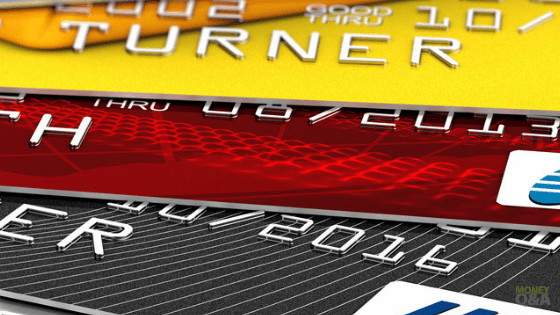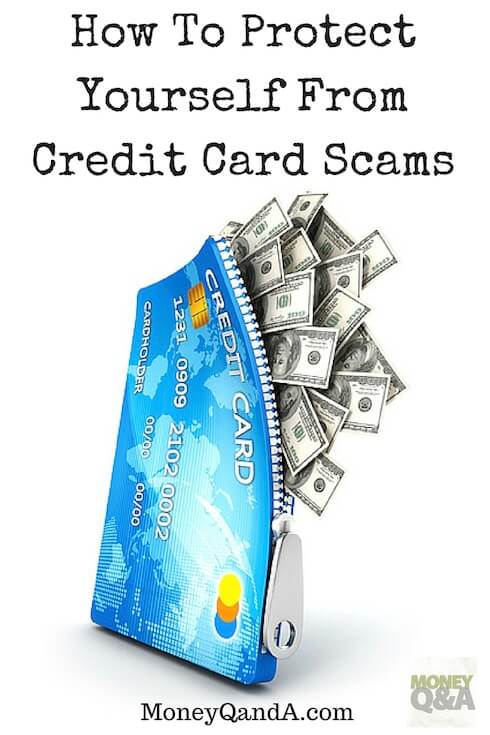The following is a guest post from Tina Roth, who is a freelance personal finance blogger who is an expert in personal finance and credit cards at writes at her blog, Pro Finance Blog. If you’d like to contribute an article to Money Q&A, be sure to check out Guest Posting Guidelines and send me an email.
The number of credit card scams is on a rise because gullible cardholders unknowingly fall into the trap set by scammers. It may appear surprising that we don’t worry about credit card scams as much as we worry about our credit scores.
The reason behind that is not many of us are aware of the magnitude of such credit card scams. We are living in a digital era, which has given scammers an edge through sophisticated hacking tools. The threat is very real and cardholders need to identify it. In this article, I discuss the threat from scammers and how consumers can protect themselves.

Credit Card Scams Every Consumer Should Watch Out For
Phone calls
Mots scammers are hackers themselves. Getting your contact details is very easy for them. After obtaining your contact information, they give you call. You pick up the phone and hear some dreaded words, which either scare you or lure you.
The caller might tell you that he’s from a credit servicing agency, and his company is willing to help you lower the interest rate that you are paying on your card. Next, he requests you to share his card details with you. Such requests are red flags. You don’t need anymore signs to hold the caller as an unscrupulous scammer.
Sometimes, scammers target aged and retired people, who are 65 years of age or older. They impersonate themselves as the grandchildren of their victims, and ask for credit card details. It might also be a fake IRS call to make you feel you are compelled to share your card details with them.
Never share your card details with anyone. If someone else but you have the details, he might use the card and your credit score may get affected. While there’s no consensus over freezing a card affects someone’s score, it leads to plenty of complications, which may hurt your score.
Phishing scams
I wrote in the very beginning that scammers have been getting smarter and smarter. Nowadays, they use custom tools, which are built solely for the purpose of data breach. One technique used by them is called phishing. They use Emails and web links to accomplish their goal, which hacking into people’s account.
You might doubt a phone call, but an email sent by a company, which claims to offer you free access to your credit score or a credit monitoring service is hard to reject. You might at least click on the link in the email and land on the signup page, which requests you to enter your card details. As you enter the details, the scammer gets an access to them.
Scammers, sometimes, create fake pages, which look similar to your online banking login page. As you log in, the credit card scams receive your financial data, including your card details. You won’t know anything until you receive the billing statement at the end of the month. And then if you write to the bureaus informing them that your card was compromised, they may not believe you. If you refuse to pay the debt, then your credit score would be hurt.
My advice, refrain from clicking on links and attachments in the emails received from unknown people and agencies. If you are logging into an online account, check the domain carefully. Is there an “s” after the “http?” If not, then don’t log in. If you get a text message on your phone, in which the sender claims to be a government agency, don’t reply.
False accounts
Scammers are mostly active online, but they have presence in the offline world as well. Some of them gather details of cardholders online, and then open accounts using cardholder’s name, address, and social security number.
These types of credit card scams are called identity thieves. They don’t gain access to your account but use your personal information to create fake accounts. You are held responsible for transactions done in that account.
The best way to avoid identity thieves is to be vigilant and not share contact details with anyone, be it online or offline. Also, sign up for a credit monitoring service, so you get to know all your account activities.
Debt settlement claims
Psychologists say in times of desperation, people believe what they want to believe. Those, who are worried about their debt, want someone to help them settle it. Scammers know this and they often approach cardholders in the garb of debt settlement firms.
They ask for upfront fees, and promise customers that their debts would be settled. Naive cardholders are sometimes deceived by such promises, and end up wasting their money as well as time. Their debts remain without being settled and their credit scores are hurt due to late payment.
Don’t make mistakes
Watch out for these four strategies used by scammers. Don’t make any mistake so they gain access to your account and damage your credit score.
What do you think of the article? Are you aware of the risks posed by scammers? Let us know in the comment section below.
Tina Roth is a freelance personal finance blogger who is an expert in the areas of personal finance and credit cards. You can reach her at Facebook, Twitter, and Google+.

